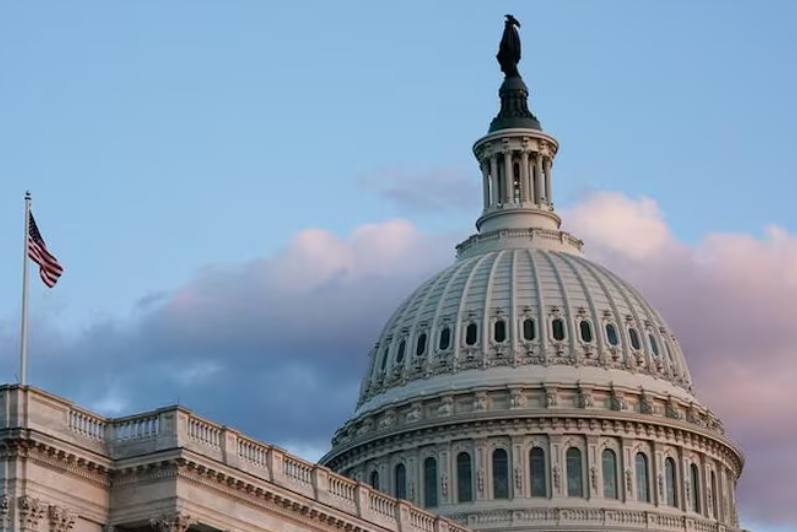The Democratic majority in the U.S. Senate launched an urgent effort on Tuesday to confirm as many of President Joe Biden’s judicial nominees as possible, aiming to prevent vacancies that Republican Donald Trump could fill if he takes office on January 20.
With Republicans poised to control the Senate starting January 3, Senate Democrats began by holding a confirmation vote on one of Biden’s judicial nominees, April Perry, marking the first judicial vote since Trump won the presidential election on November 5. The Senate confirmed Perry, a former prosecutor, as a U.S. district court judge in Illinois with a 51-44 vote.
Biden has put forward 30 additional judicial nominees who now await Senate confirmation. Sixteen have cleared the Senate Judiciary Committee and are up for a final vote by the full Senate, while another 14 still require committee review. Under the U.S. Constitution, the Senate holds the power to confirm a president’s nominees for life-tenured seats on the federal judiciary.
“We’re going to get as many done as we can,” pledged Senate Majority Leader Chuck Schumer.
During his first term, Trump appointed 234 judges, marking the second-highest total for a single term and shifting the judiciary to the right. His appointments built a 6-3 conservative majority on the U.S. Supreme Court, including three justices he nominated. Since 2021, Biden has countered by appointing 214 judges, including liberal Supreme Court Justice Ketanji Brown Jackson. His appointees include a diverse representation, with about two-thirds being women and racial minorities.
Senate Democrats, feeling the pressure, intend to confirm the remaining nominees as quickly as possible, alongside any new candidates Biden may nominate in the final weeks of his presidency. However, how many nominees they can confirm remains uncertain. Trump recently urged Senate Republicans to stop Biden’s nominees, stating, “Democrats are looking to ram through their Judges.” On Tuesday, Trump supporter Elon Musk echoed this sentiment on social media, calling “activist” judicial nominees “bad for the country.” Conservative judicial advocate Mike Davis also called on Senate Republicans to block all appointments until January, saying, “The American people voted for monumental change. Grind the Senate to a halt.”
Senate Republican leader Mitch McConnell has not commented, though he has consistently opposed Biden’s nominees and played a critical role in confirming Trump’s judicial picks during his tenure as majority leader. Trump’s appointees have contributed to decisions celebrated by conservatives, including Supreme Court rulings that restricted abortion rights, expanded gun rights, ended race-conscious college admissions, and limited federal agency powers.
Democrats, with a narrow 51-49 majority, require nearly full support from their caucus to confirm nominees since judicial confirmations only need a simple majority. Any absences or defections among Democrats could endanger confirmations if Republicans remain unified in opposition. Senator Joe Manchin, an independent who caucuses with Democrats, has stated he will not support any nominee without at least one Republican vote. The Senate also faces time constraints from high-priority legislation, such as a spending bill to prevent a government shutdown.
Biden’s allies aim to confirm as many judicial nominees as possible, pushing to diversify the federal bench long dominated by white men. Biden continues to nominate judges, including Tali Farhadian Weinstein, who he nominated on Friday to serve as a federal district judge in New York after she previously ran for Manhattan district attorney in 2021.
Senator Dick Durbin, Judiciary Committee chair and the Senate’s second-ranking Democrat, emphasized his commitment to confirm every possible nominee before the session ends. The White House noted that, in Trump’s first term, the Senate confirmed 18 judges for lifetime appointments in the weeks following Biden’s 2020 victory but before his inauguration.
Among the pending nominees, five are up for seats on the influential federal appeals courts. Republicans claim they have enough votes to block two of them: Adeel Mangi, who would become the first Muslim federal appellate judge, and North Carolina Solicitor General Ryan Park, who previously defended race-conscious college admissions policies before the Supreme Court. Other nominees for trial court positions, including Perry, add to Biden’s list of appointees awaiting Senate action.

